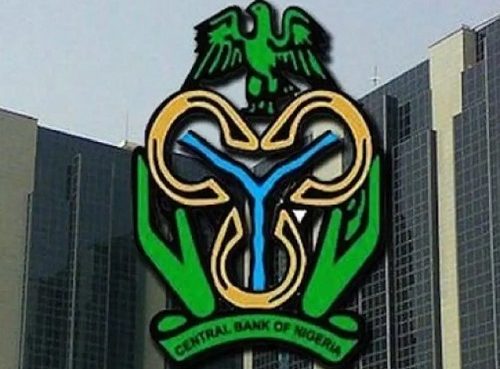The 41 licensed ISPs with the regulator are Internet Solutions; Spectranet; VDT; Cobranet; Wavetek; NetAccess; MainOne Cables; Layer3; ICSL; Juniper; Smartcity Broadband; ipNX; Vodacom; CBC Emea; Tehilar Based Limited; BAT; Platinum Index; FutureCom and Winrock.
Others are Khal Communications; Mobitel Limited; Trakatel Limited; ECNX; Excelsimo; Ekovolt; Trefoil Networks Limited; Content Oasis Limited; Hyperia Limited; Entouche Networks Nigeria Limited; E-sense Technology;
CPN Limited.com; VPS Technologies; Cloud Cover; SADC; Orange Limted; ConnectFocus; Winrock Limited; Skymax; Telserve Networks Limited; Arrowfast Limited, and Arcelor Networks.
However, the leading 10 operators include Spectranet with 197,589 connected customers; ipNX 10,177; Tizeti 7,079; Arrowfast Limited 4,500; Cobranet 3,189; Vodacom 2,021; Hyperia Limited 1,950; MainOne 1,371; VDT 1,254;Cloud Cover 527 and ICSL 428.
It is worthy of note that some five years ago, Nigeria could boast of about 103 licensed ISPs nationwide, but the figure has continued to nosedive since then, leading to only 23 operators with licences in 2018, and now 41.
The checks showed that many factors are responsible for the continued struggling of the ISPs in the country. The incursion of telecommunication operators such as MTN, Globacom, Airtel, 9mobile and nTel has been a major development in the life of the ISPs. The telecoms operators, which possess Universal Access Service Licence (UASL), offer mobile Internet service, which hitherto was the traditional service offering of ISPs. Indeed, while the ISPs battle to retain 233, 364 customers, the quartet of MTN, Airtel, Globacom and 9Mobile can boast of 122 million subscribers.
Stakeholders and some of the ISPs also blame the situation on harsh business environment occasioned by the sharp practices of GSM operators, who now compete with ISPs in retail service offering, instead of sticking to wholesale service offering.
Speaking, the President, National Association of Telecoms Subscribers of Nigeria (NATCOMS) Deolu Ogunbanjo, said their major problems have been the ability of Mobile Network Operators (MNOs) to operate in ISPs terrain.
Ogunbanjo, who said the MNOs have changed their strategies from just voice offering to data services, noted that the economy should not be blamed, saying: “ISPs must evolve to stay afloat. They should offer reduced but attractive tariffs.”
He called on the regulator to come up with policies that will keep the ISPs afloat in the country.
A major ISP CEO in the country, who spoke on the condition of anonymity, disclosed that the major challenge the operators face is the arbitrary fixing of prices by bigger operators just to stifle smaller operators and force them out of market.
He stressed the need for regulatory control and the reintroduction of Data Floor Price by the NCC.
A telecoms expert, Kehinde Aluko, said that more ISPs may still go down due to the current economic situation in Nigeria.
Aluko explained that the ISPs buy broadband data in wholesale from companies like nTel, MainOne, Glo1, and MTN, who have berthed their submarine cables with huge bandwidth capacities at the shores of the country, in turn, “they retail the broadband data bundle to individuals and organisations, but the same broadband company that sell to them are now in competition with them, selling directly to same customers even at reduced price, thus making competition and survival extremely difficult for ISPs.”
At a telecoms stakeholders conference in Lagos, NCC Director, Licensing and Authorisation, Ms. Funlola Akiode, said despite the fact that over 70 per cent of Nigeria’s population are active mobile subscribers, the digital divide is still wide especially as regards rural dwellers.
According to her, in 2017, statistics of Internet users across Africa indicated that Nigeria has the highest users; however the country tends to be the lowest when measured in accordance with penetration rate. For instance, she said with a penetration rate of 48.8 million when compared with Nigeria’s population was just 0.3 per cent or 34 per cent, adding: “while our population is increasing in a geometric progression, the Internet usage and penetration rates are increasing in arithmetic progression.”
Akiode, who urged the ISPs to be more creative for business continuity, noted that as a responsive regulator, the sustainability of ISPs in telecommunications businesses in Nigeria was a primary interest to NCC.
Other identified challenges crippling ISP businesses in the country include disparity between advertised Internet speeds and actual speed obtainable on the networks; inadequate provision of redundancy by ISPs to handle network down time and lack of compensation for downtime; poor quality of service; inexplicable depletion of data services, auto renewal of service among others.
QUOTE
Other identified challenges crippling ISP businesses in the country include disparity between advertised Internet speeds and actual speed obtainable on the networks; inadequate provision of redundancy by ISPs to handle network down time and lack of compensation for downtime; poor quality of service; inexplicable depletion of data services, auto renewal of service among others.
Source: Guardian










